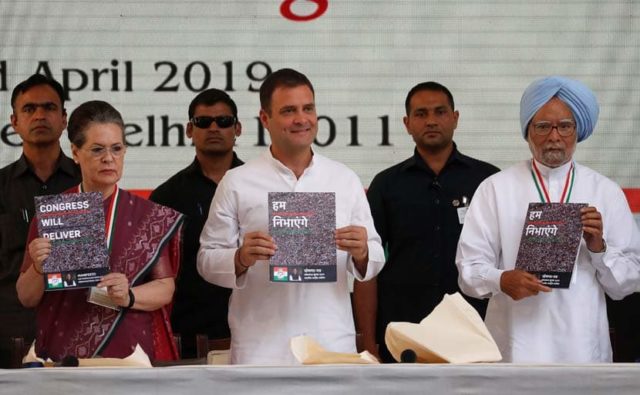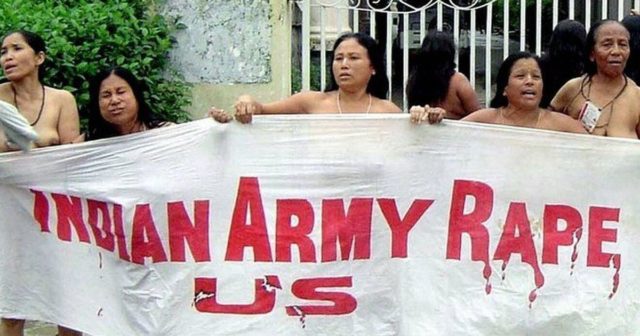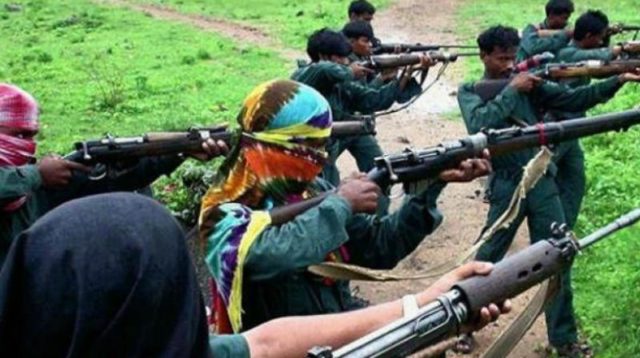Disclaimer: Originally published in April 2019. It is being republished since it still remains an interesting topic till today.
Demystifier: An ED Original where we take a complex topic but the content is written in such a way that it is knowledgeable and easy to comprehend at the same time.
Congress has revealed its Election Manifesto. This immensely attractive manifesto has the caption ‘CONGRESS WILL DELIVER’ etched on its cover (maybe it is finally acknowledging the fact that it didn’t in its UPA’s 2nd tenure).

The grand old party has promised a lot of things, but a particular point has grabbed the Twitterati’s attention, the one that promises to amend AFSPA.
So what is AFSPA?
The Armed Forces (Special Powers) Act is commonly known as AFSPA. It was legislated to bring under control what the Centre or State considered as a ‘disturbed area’.
After the Governor officially declares an area as ‘disturbed’, armed forces are deployed for a minimum of 3 months.
History
The act finds its roots in an ordinance passed by the British government to suppress the Quit India Movement of 1942. In 1947, 4 daughter ordinances were made out of this mother ordinance to deal with riots amid partition. The ordinance was repealed in the same year. Naga insurgence brought it back and it was also applied to other parts of the North East.
In 1958, AFSPA was enacted in Assam and Manipur, and was then extended to the other parts of North East, Punjab and Jammu & Kashmir.
Most notable mentions would be:
- 27 years of AFSPA in Meghalaya,
- 18 years in Tripura and
- 13 years in Punjab.
Not to mention Kashmir where AFSPA has been implemented since 1990.
Also Read: Watch: Did The North-East (Especially Nagaland) Never Want To Be A Part Of India?
Why AFSPA?
The act has been traditionally invoked in insurgency-hit areas, where separatist movements break out. In times like this the State machinery like the Police seems to be incompetent to handle such a situation, so the armed forces are summoned.
Why is it so controversial?
The act allows the forces to:
- ‘Shoot to kill’ but critics believe that the deployed personnel now act like they have license to kill
- Search houses, destroy property
- Arrest without warrant
- Arrest on ‘reasonable suspicion’
The soldiers can make decisions at their discretion. There have been cases of soldiers shooting down entire villages on the suspicion of hiding insurgents. 10 civilians were shot while waiting in a bus station, by security personnel, in Manipur. This incident triggered Irom Sharmila to go on a hunger strike for 9 years against AFSPA.

Incidents like these have brought the act in a bad light.
The 4th and the 6th section of the 6 sectioned act is the bone of contention. The former allows the security forces to “fire upon or otherwise use force, even to the causing of death”, while the latter provides almost complete legal protection to the soldiers in the AFSPA areas respectively.
Prosecution is possible, but only if Centre gives permission. Note that till this date, permission has not been given in any case.
Critics believe that because the army is given unlimited powers and there is virtually no accountability, this act has been misused. Incidents of assaults, rape, and many other atrocities have been reported from the areas where the army was deployed.

AFSPA overrides a dozen of civil rights, including fundamental rights like the right to free association, freedom of expression, etc.
Why should it stay?
- FOR THE SAKE OF THE INTEGRITY OF INDIA.
The only reason why AFSPA needs to stay is because it acts as a mechanism to deal with secessionist movements. Now you know why even after multiple attempts of succession and insurgency, India is still united (geographically). NOTE: Pakistan Occupied Kashmir (PoK) is a different case because it was a result of the Pakistani invasion.
- The army is trained for military combats, not to deal with civilians, so they expect a little perceptual concession. Maybe the security personnel can be sensitized a little before they are deployed to the disturbed areas.
- Also, insurgents are loaded with guns anyway, so eliminating them by force doesn’t seem to be unfair. On the downside, the unnecessary use of this force on innocent people has increased the feeling of alienation from the Indian mainland.
- Supporters say AFSPA is necessary to boost the morale of Army personnel and for the same reason, they need legal protection to take effective decisions. I agree with the protection part, but maybe this protection shouldn’t be made absolute to prevent atrocities against innocent civilians.
What has Congress said?
Congress, in its election manifesto, has said that it will amend a few provisions of AFSPA if it comes to power. For the same reason, it has been called an anti-national party for ‘proposing’ to play with ‘national security’.

But turns out, it is not the first one to do so. The UN has already asked India to remove the draconian act. Human Rights Watch, an international NGO, has said it is discriminatory and abusive, and has no role in democracy.
Back home, Reddy Committee and the Second Administrative Reforms Commission (ARC) headed by then Union law minister M Veerappa Moily have recommended repealing AFSPA and incorporating its essential in the Unlawful Activities (Prevention) Act (UAPA) of 1967.
Thus, I don’t think what Congress has proposed is anti-national, on the contrary, it is something that is in line with national and international expertise.
AFSPA has also increasingly isolated the people living in border states.
Making amendments at the right time would be right before the border states start seeing it as a tyranny of the mainland.
Image Credits: Google Images
Source: The Hindu, Indian Express, Wikipedia
Find the blogger @parihar_tweets
You’d also like to read:
AFSPA is draconian. Not needed.
































